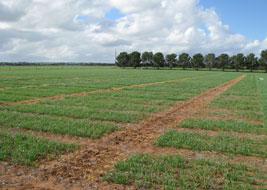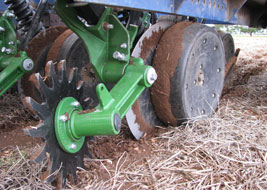Improving IWM practice in the Southern Region - Emerging weed issues
The widespread adoption of no-till agriculture has decreased dependence on soil tillage and led to an increase in weed species suited to low soil disturbance no-till systems. This project, led by the University of Adelaide, collaborates with a range of institutions and farming systems groups to provide better understanding of the biology of key emerging weed species and practical options for integrated weed management (IWM). One important component of IWM comprises the minimisation of soil disturbance at seeding using zero-till disc seeding systems.
As a project partner, the Barbara Hardy Institute at UniSA collaborates on the objective of understanding and improving weed control efficacy and crop safety under disc seeding systems with pre-emergent herbicides incorporated by sowing. A standard ranking protocol for quantifying crop risk and herbicide efficacy levels under disc seeders is aimed for use by equipment manufacturers and herbicide registrants, with the aim to optimise crop performance and weed management efficacy in practice.


Project funding
This project is funded by the Grains Research and Development Council (ACIAR) for four years (2012-2015).
For further information, please contact Jacky Desbiolles.



